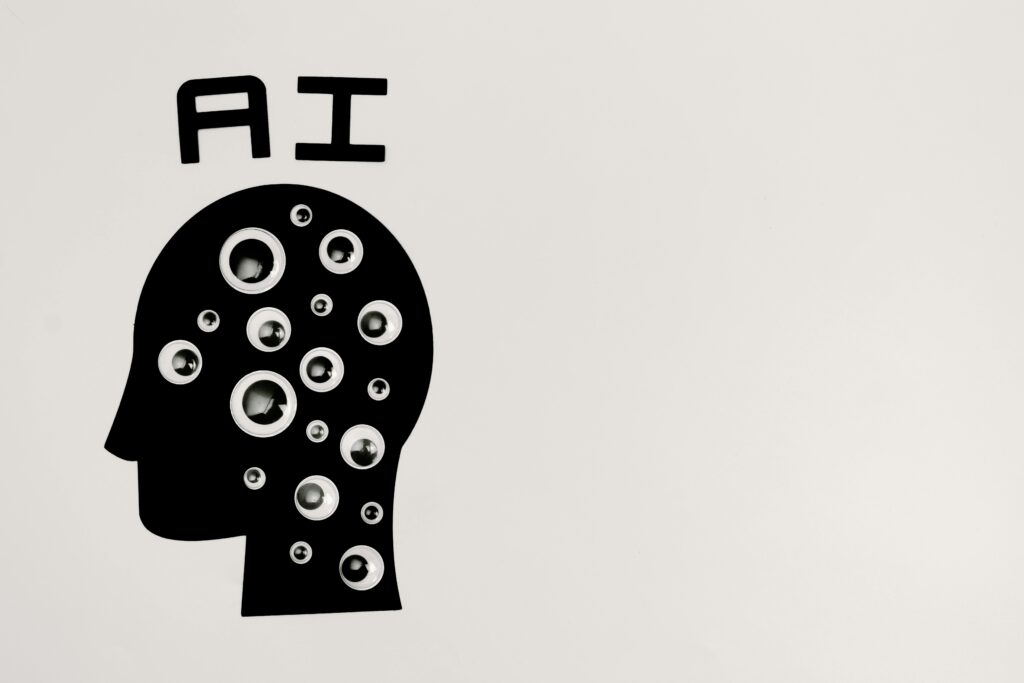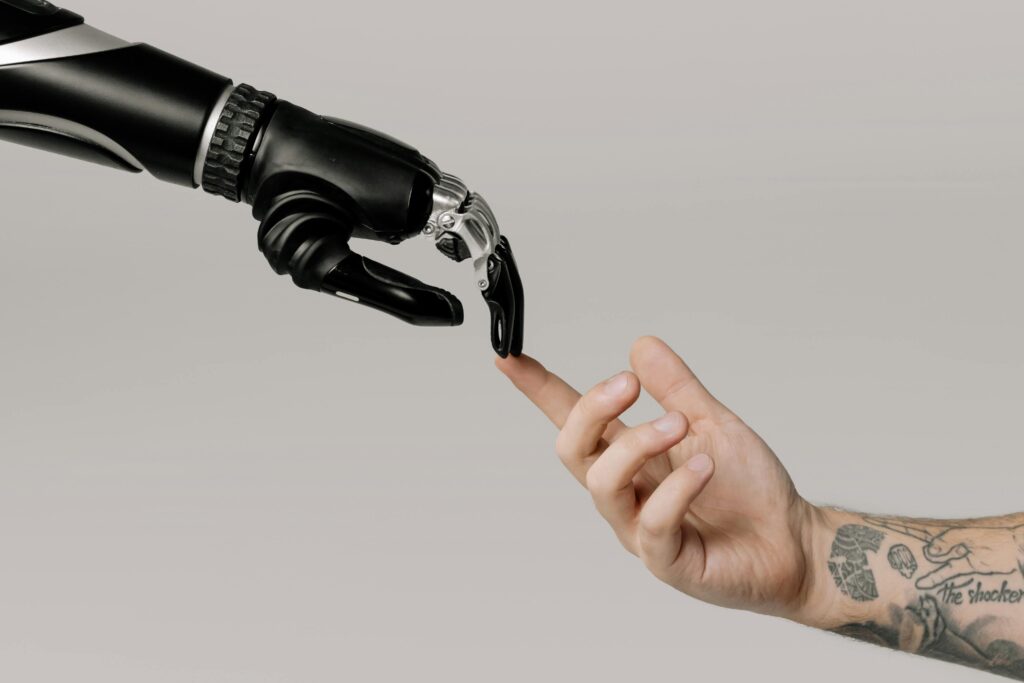Introduction:
Artificial Intelligence (AI) has evolved from a niche area of research to a powerful tool that’s already making significant impacts on our everyday lives. We interact with AI in countless ways—whether through voice assistants like Siri and Alexa, personalized recommendations on platforms like Netflix, or even in the healthcare systems that increasingly rely on AI to diagnose and treat patients. But AI is no longer just about automating simple tasks or making processes more efficient. It is now a transformative force, fundamentally reshaping industries, society, and the way we live. In this blog, we will explore the rise of AI, its potential benefits, and the challenges we may face as it continues to evolve.

What Is AI?
AI is the simulation of human intelligence in machines that are programmed to think and learn like humans. It encompasses a variety of technologies, including machine learning, natural language processing (NLP), computer vision, and robotics. The goal of AI is to create systems that can perform tasks that typically require human intelligence, such as problem-solving, decision-making, and learning from experience.
The rapid development of AI has been fueled by advances in computing power, data availability, and algorithmic improvements. From self-driving cars to AI-powered chatbots, AI is making waves across every industry.
How AI Is Revolutionizing Various Industries
-
Healthcare: AI is transforming healthcare by enabling more accurate diagnostics, improving patient care, and making treatment more personalized. For example, AI systems can analyze medical images (like X-rays and MRIs) to detect signs of disease, often more accurately than human doctors. Additionally, AI is helping develop new drugs faster by predicting how different compounds will interact in the human body.
AI in Healthcare Example: IBM Watson Health is using AI to help doctors analyze large sets of medical data to identify patterns and suggest treatment plans. This helps improve patient outcomes while reducing the burden on medical professionals.
-
Finance: The finance industry is leveraging AI to predict market trends, manage risk, and provide more personalized services. Algorithms can analyze vast amounts of data, identifying patterns that might be missed by humans. AI-driven tools, such as robo-advisors, can even help individuals manage their investment portfolios without needing a financial advisor.
AI in Finance Example: Companies like JPMorgan Chase are using AI-powered tools to monitor and prevent fraud. Machine learning models analyze transaction patterns to detect suspicious activity in real-time, significantly reducing financial fraud.
-
Manufacturing: AI is enabling manufacturers to optimize production lines, reduce waste, and predict equipment failures before they happen. With AI-powered predictive maintenance systems, manufacturers can monitor the health of their machines and schedule repairs before a breakdown occurs, reducing downtime and increasing efficiency.
AI in Manufacturing Example: General Electric uses AI to predict when critical equipment like turbines or jet engines will need maintenance, minimizing unplanned downtime and maximizing operational efficiency.
-
Retail and E-commerce: AI is also revolutionizing retail, helping businesses deliver personalized shopping experiences and optimize inventory management. AI-driven recommendation engines suggest products based on a user’s browsing history, while chatbots assist customers in real time.
AI in Retail Example: Amazon uses AI to personalize recommendations and optimize its supply chain. By analyzing customer data, the company can predict what products will be in demand and ensure that inventory levels are balanced.
-
Transportation: AI is at the forefront of transforming the transportation industry, especially with the development of autonomous vehicles. Self-driving cars use AI to interpret sensor data, make decisions, and navigate safely without human intervention. This could potentially revolutionize the way we travel, reduce accidents, and make transportation more efficient.
AI in Transportation Example: Tesla’s Autopilot feature is a prime example of AI in action. It uses machine learning algorithms to analyze data from sensors and cameras to navigate and steer the vehicle on highways, enhancing driver safety.

The Potential Benefits of AI
-
Increased Efficiency: AI can automate repetitive tasks and improve decision-making, resulting in increased productivity and efficiency. For example, AI algorithms can analyze large datasets far more quickly than a human ever could, providing insights that can drive business strategies and innovations.
-
Cost Savings: By automating processes, AI helps businesses cut down on costs, whether through reducing the need for human labor in certain roles or minimizing errors that can lead to expensive mistakes.
-
Improved Accuracy and Precision: Whether in healthcare diagnostics or manufacturing, AI systems can achieve high levels of precision. These systems are capable of processing vast amounts of data and spotting patterns that humans might overlook, making decisions that are often more accurate than those made by humans.
-
Enhanced Personalization: AI’s ability to analyze data and learn user preferences means that businesses can offer highly personalized products and services. From personalized shopping recommendations to tailored news feeds, AI ensures that users receive experiences that are unique to them.
The Challenges of AI: What We Need to Consider
While the potential of AI is vast, it comes with its own set of challenges and ethical considerations.
-
Job Displacement: One of the most pressing concerns about AI is its potential to replace jobs. As AI becomes more capable of performing tasks that were once done by humans, there’s a fear that many people will be out of work. Jobs in fields like manufacturing, customer service, and even some professional services may become obsolete.
-
Bias and Fairness: AI systems can inherit biases from the data they are trained on. If an AI model is trained on biased or unrepresentative data, it can make biased decisions, which could exacerbate inequalities in society. For example, biased algorithms in hiring processes could discriminate against certain groups.
-
Privacy Concerns: The widespread use of AI requires massive amounts of data, often involving sensitive personal information. This raises significant privacy concerns, as people worry about how their data is being used and whether it could be exploited. Striking the right balance between innovation and privacy is crucial for AI’s future development.
-
Ethical Implications: As AI becomes more autonomous, questions arise about accountability. If an AI makes a mistake or causes harm, who is responsible? Determining the ethical boundaries of AI usage—especially in sensitive areas like healthcare and criminal justice—is something that society must address.

The Road Ahead: The Future of AI
AI has already started reshaping our world, and its impact is only going to grow. The future holds immense potential for advancements in fields like healthcare, education, transportation, and beyond. However, we must navigate the ethical, social, and economic challenges that come with such rapid technological growth.
As AI continues to evolve, it’s crucial that policymakers, businesses, and society as a whole work together to ensure that AI is developed and deployed responsibly. By embracing the benefits of AI while addressing its challenges, we can create a future where AI enhances our lives without compromising our values.
Conclusion:
The rise of AI is a revolution that’s just beginning. From making healthcare more accurate to transforming industries like finance and retail, AI’s potential is limitless. However, we must also be mindful of the challenges that come with its rapid advancement. By continuing to innovate responsibly and addressing the ethical questions surrounding AI, we can build a future where technology works for the betterment of humanity.

